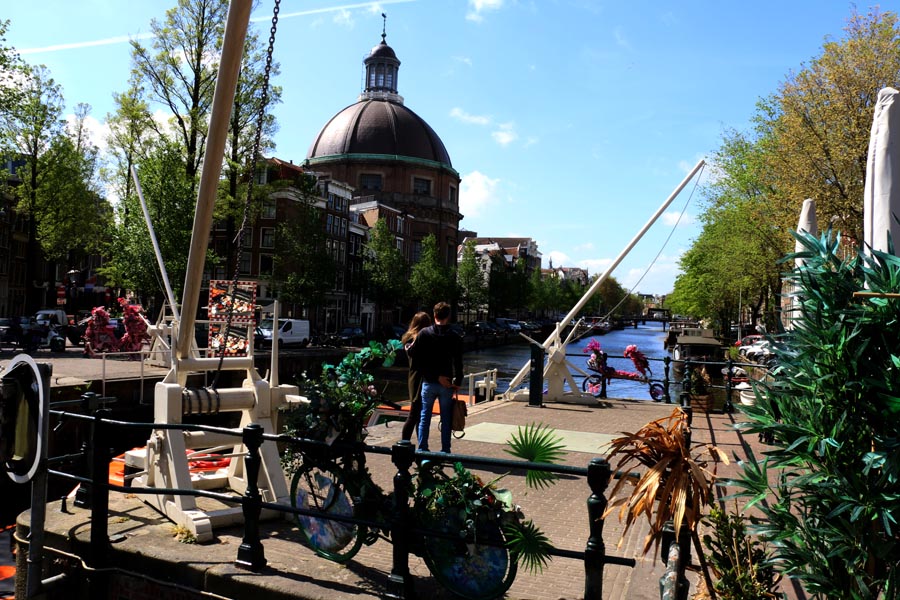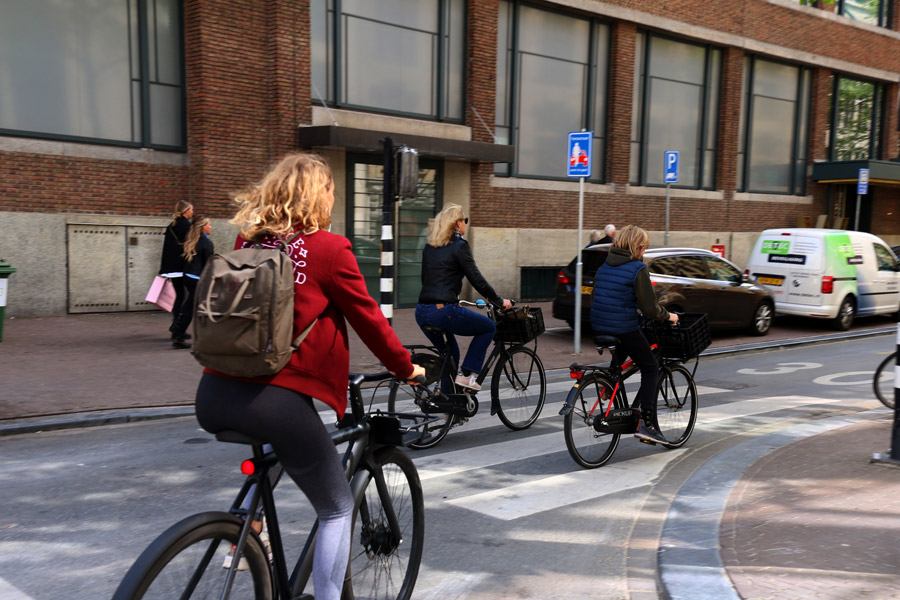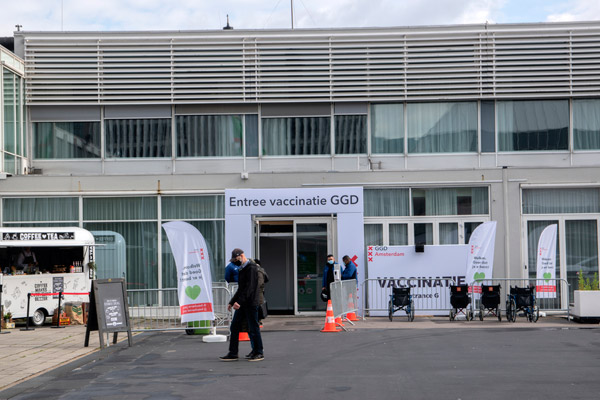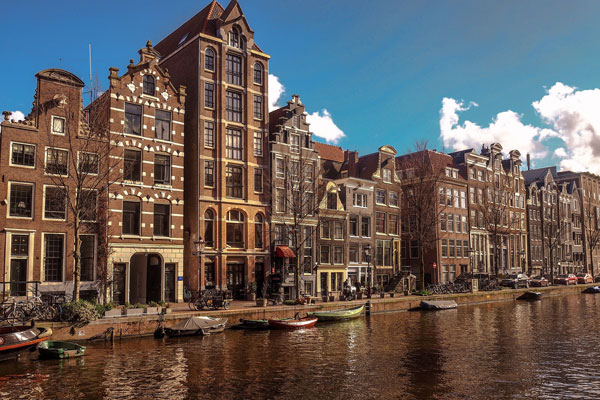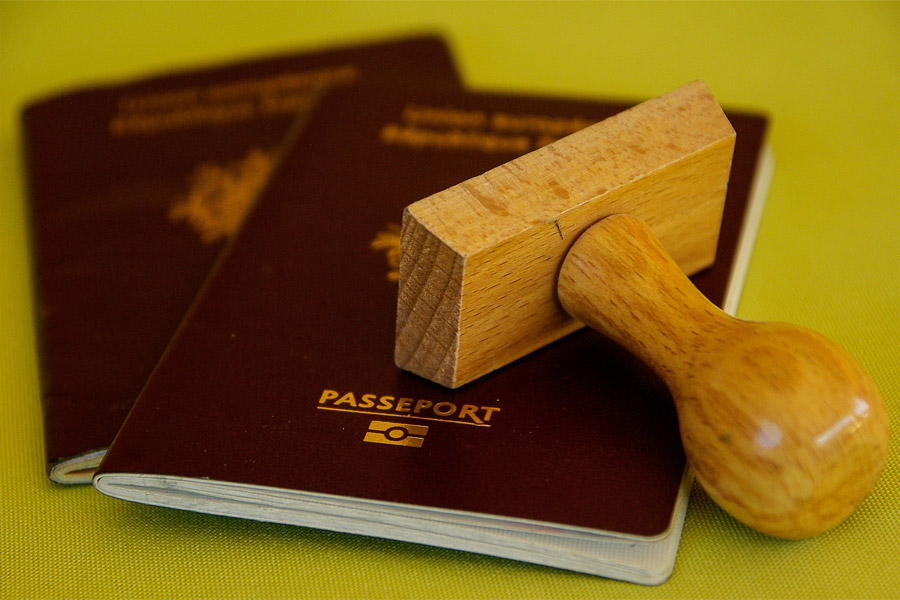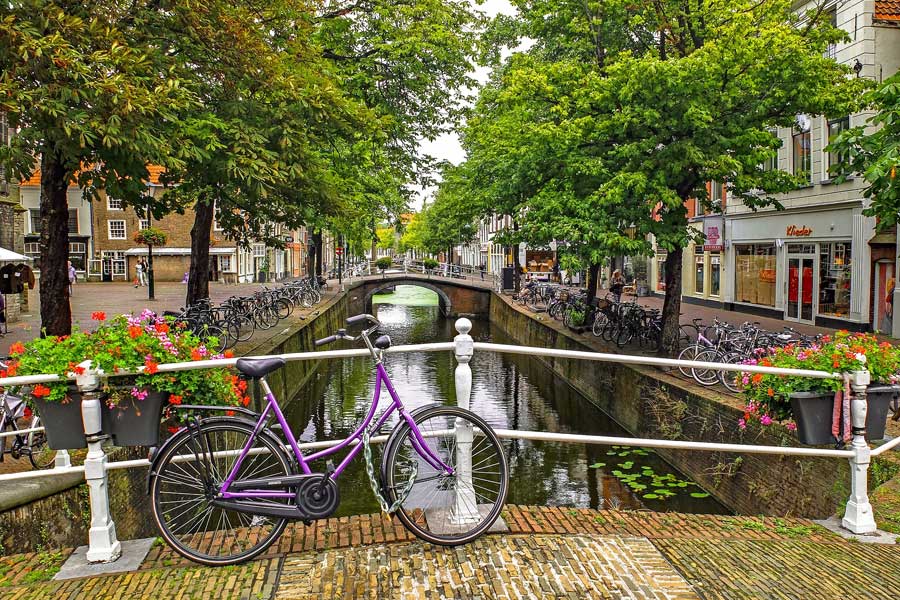Regular Provisional residence permit (MVV)
The Regular Provisional residence permit (MVV) is a special visa that is issued for a stay longer than 90 days. Your sponsor submits an application both for an MVV and a residence permit at the same time. Not everyone needs an MVV to enter the Netherlands. All About Expats as your sponsor then applies for a residence permit directly. All About Expats can submit the application while you are not yet in the Netherlands.
Not everyone needs an MVV. Nationalities that are exempt from the MVV requirement are Australia, Canada, Japan, Monaco, New Zealand, South Korea, United States of America or Vatican City. More information can be found on the IND website.
What is the difference between a visa and a residence permit?
Citizens of certain nationalities cannot just travel to the Netherlands; these nationalities require a visa sticker (MVV) in their passport which allows them to enter the Netherlands. A visa sticker is collected at the Dutch embassy or consulate in your home country (or a third party country if there is no Dutch representation in your own country). Conversely, all Non-EU citizens need a residence permit. This is an ID card which you will receive in the Netherlands.
Please check the Dutch government website for an overview of countries and cities where you collect your mvv.
My visa is only valid for three months, what should I do?
There is nothing to worry about. If your nationality requires a visa (MVV) and residence permit (VVR), we will apply for both. You will collect the visa at the embassy or consulate in your home country. This is a sticker that is placed in your passport. The visa is always valid for three months. This is due to the fact that a visa is only used to travel to the Netherlands. From the moment you have collected the visa, you have three months to travel to the Netherlands. The residence permit, on the other hand, is an ID card that you will pick up in the Netherlands. This is the actual document that allows you to stay legally in the Netherlands during your studies here.
If you want to make an appointment with the Dutch representative please check www.netherlandsworldwide.nl
I wish to travel through Europe, can I do this with my Dutch entry via and residence permit?
Yes, you can travel to Schengen member states only. Before you travel, please check whether the countries of your destination are Schengen states. Your entry visa (MVV) allows you to travel through Schengen countries for a maximum of 90 days. Please check the Schengen calculator to check how many days you still have left. The MVV is also referred to as a type D-visa. The D-visa is valid for 90 days from the commencement date stated on the visa sticker that is placed in your passport. You can use the D-visa to enter and leave the Netherlands (and other Schengen countries).
The residence permit for study allows you to live and study in the Netherlands, and to travel to all the Schengen countries and back to the Netherlands as often as you like while the permit is valid. Please note though that the maximum amount of days you can spend uninterrupted in another Schengen country is 90 days.
Also note that some countries require that your Dutch residence permit continues to be valid for a specific period of time (either three or six months) after your arrival in their country. This may have a significant effect on your travel plans, particularly during the summer months. Please remember this when you are planning to travel outside the Netherlands and check about any such requirements before you book any travel tickets.
What is the municipality and a BSN number, and is this related to my residence permit?
The municipality is the local government of a place. Depending on where you live, you fall under the municipality of Amsterdam or Amstelveen. It is necessary to register with the municipality in order to keep the right of your residence permit. When you have registered at the town hall, you will receive your BSN number within a few weeks (both Amsterdam and Amstelveen municipalities are present during the Arrival Days and you can register then as well).
A BSN number is a social security number needed to arrange all sorts of practical matters such as opening a Dutch bank account. Students often mistake the BSN number for their residence permit, and the municipality for the Dutch Immigration Service (IND). However, these are two separate institutions. The IND handles immigration matters and the municipality arranges the registrations in the town hall. You do not receive your BSN number when you have picked your residence permit at the Dutch Immigration Service (IND), but once you have registered with the municipality. So the IND and the municipality are not related. Please also note that it does not matter in which sequence you complete these practicalities; that is, you do not need a BSN number to collect your residence permit nor do you need to have your residence permit already in order to register with the municipality.
Can I apply for Long-term residence in the Netherlands?
Both the EU Blue Card holder and the Dutch highly skilled migrant permit holder may qualify for a permanent EC long-term residence permit, under Directive 2003/109/EC, after a five-year legal stay in the Netherlands.
Accumulate periods
The benefit for the EU Blue Card holders is that they are allowed to accumulate periods of residence in different Member States in order to fulfill the requirements of 5 years of legal and continuous stay. Provided, that the applicant has legal and continuous residence for two years immediately prior to the submission within the territory of the EU member country, where the application for the EC long-term residence permit is lodged.
The possibility to accumulate periods of residence in other Member States is not open to holders of the Dutch highly skilled migrant permit.
Another advantage
There is another big advantage for EU Blue Card holders: if the employee leaves the European Union, it is not considered an interruption of the five-year continuous legal stay (providing that this period is shorter than 12 consecutive months and does not exceed 18 months in total). These periods of absence are restricted to cases when the EU Blue Card Holder has returned to his country of origin to work as an employee or self-employed person, or to study or volunteer.
Holders of the Dutch highly skilled migrant permit are not allowed to have any interruption in their five years of legal and continuous stay to qualify for the EC long-term residence permit.
ICT permit
The ICT permit does not count towards obtainment of the EU long-term residence permit. However, the ICT permit may count towards obtaining the Dutch national residence permit after five years of continuously holding a valid residence permit. As that the ICT permit is issued for a maximum of three years, it must be switched to another type of permit after three years. This would enable the employee to build up five years of residence, enabling them to apply for the Dutch permanent residence permit.

